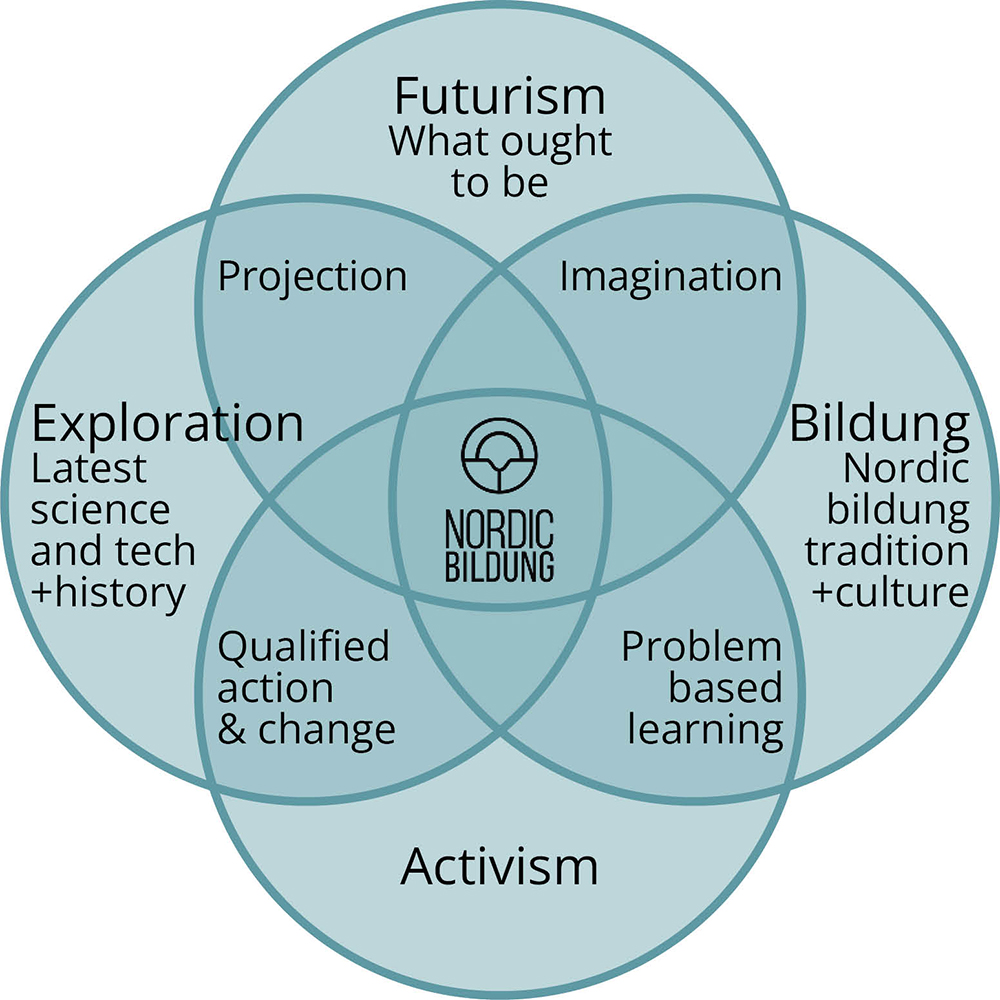Catalyst for a better future in a world of profound changes
The world is changing faster and in more profound ways than we can grasp. Nordic Bildung has one foot in the past and one in the future. From this position, we follow science and develop models and theories that allow us to see structures in the changes so we can grasp more–research and history qualify Nordic Bildung’s future systems studies and humanistic futurism.
We also organize events, courses, and study circles based on a 175-year-old Danish study tradition: Nordic bildung.
Nordic Bildung’s future systems studies, humanistic futurism and Nordic bildung methods allow us to have qualified, meaningful, inclusive conversations about the changes and the future we need to create.
Our goal is a better future and the wiser decisions that can take us there. In Nordic Bildung, we strive to be a catalyst between the world that we know and a world that allows everybody to thrive.
We have four main agendas:
- Exploration
- Exploring and raising awareness about the deep structures of the polycrisis.
- Basing this work on as much scientific research as possible:
- The latest science and technolog, which we need to grasp, and
- history, so we can learn from the past.
- Bildung
- Raising awareness about bildung and better education globally, particularly the Nordic bildung approach, so we can address the polycrisis and its structures.
- Future systems studies and humanistic futurism
- Co-creating polymodern visions for the future so we can explore how the future ought to be and create a meaningful future.
- Activism
- Making a difference together with volunteers, partners, and clients.

We do this through five overall activities: Our content creation and our ‘venues,’ i.e. Nordic Bildung Academy, Nordic Bildung Consulting, Business Development, and Leadership Training, Global Bildung Network, and Nordic Bildung Media.
Nordic Bildung is a thinking lab and a bildung lab; that is what we mean by future systems studies and humanistic futurism. We want to grasp the world in new ways that match its constantly rising complexity, and we want people to engage with new knowledge, with the world, and with their own life-situation in new and meaningful ways that match the 21st century.
The world is changing so rapidly that we can no longer rely solely on what we learned in school. We need to see and grasp dimensions of the world that were not available just 10 years ago, e.g. what goes on in cyber space. We also need to understand the underlying structures in human interaction, in history, and how eco-systems thrive.
Words we use and how we use them
Bildung
A German word for education, cultivation, personal formation and character, emotional, and moral development, and maturation combined. Definitions abound, and we will never be done with exploring and defining them.
Folk-bildung
Invented by Danish pastor NFS Grundtvig in the 1830s: bildung for the rural, Danish youth so they could become qualified and conscientious citizens during the turmoil of industrialization.
Nordic bildung
A Nordic approach to education of all kinds: The purpose is to find out who the student is and what it is inside them that is there to unfold; nobody, not even the student, can know in advance. Nordic bildung is not focused on predefined goals but on what the learner needs to become fully him/her.
The Nordic Secret
A book written by Lene Rachel Andersen, new edition January 30, 2024. The book explores how folk-bildung and Nordic bildung shaped the Nordic countries; folk-bildung is our Nordic secret. Read the short version, The Danish Secret, on medium.com.
Nordic bildung versus Nordic Bildung
“Nordic bildung” is the pedagogical bildung method that we practice in the Nordics. The term did not exist until we started Nordic Bildung in 2018 were ‘Nordic’ and ‘bildung’ were brought together as a name, and it was people in the Global Bildung Network who first started using the term Nordic bildung to refer to the Nordic tradition for bildung. Now it is a thing, and you can read about it in the new edition of The Nordic Secret.
For more explanations, visit our Lexicon.

